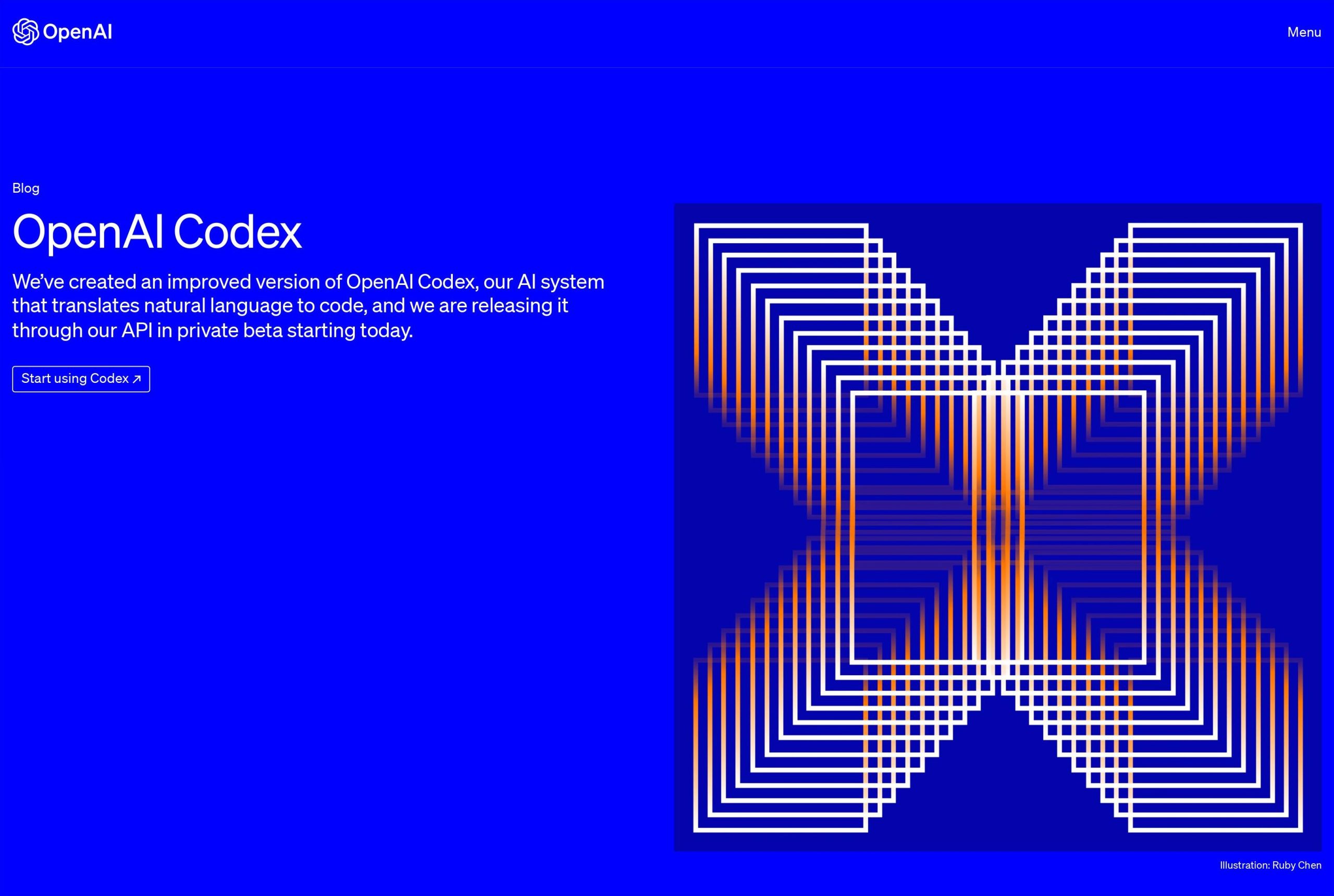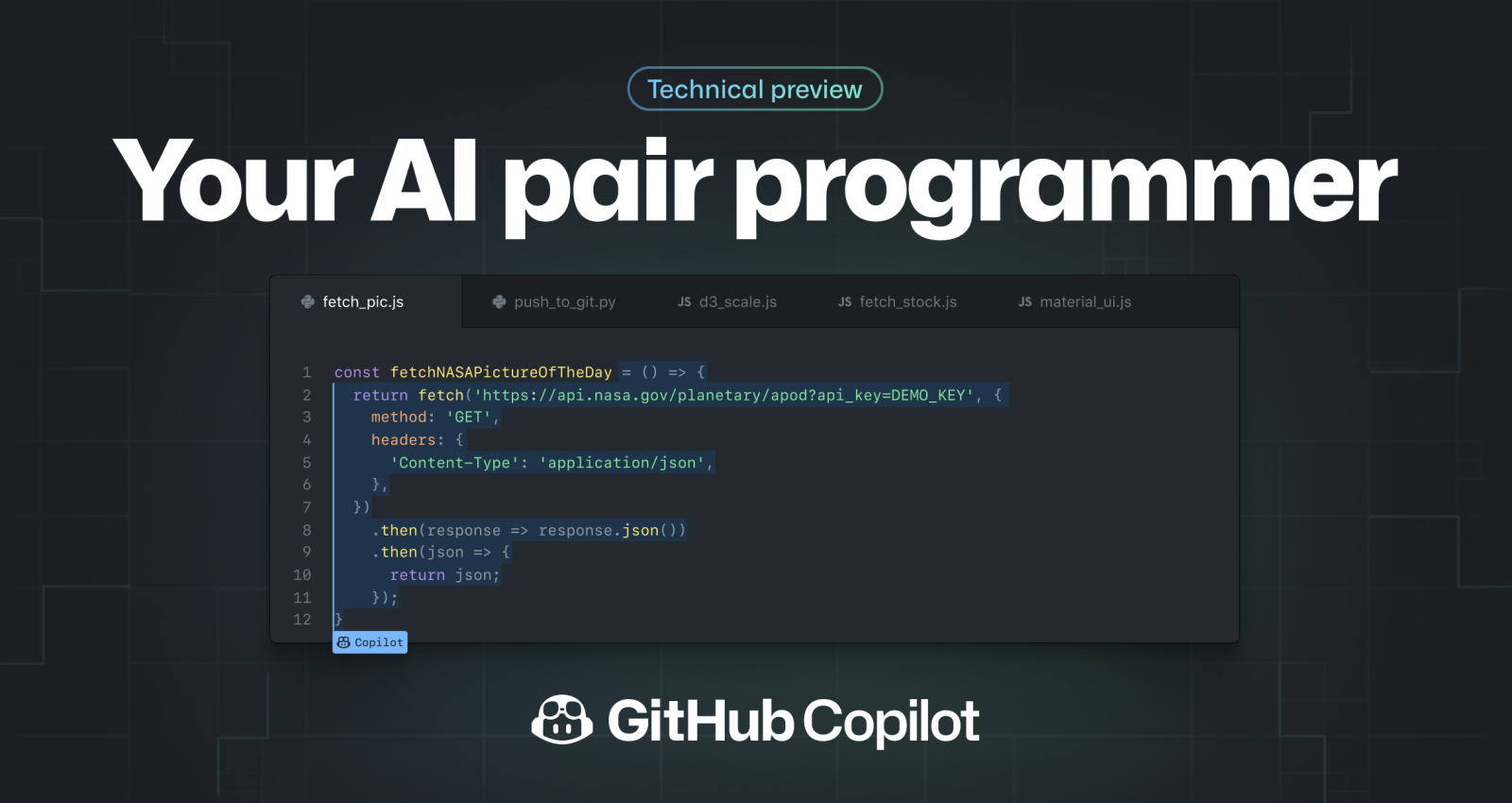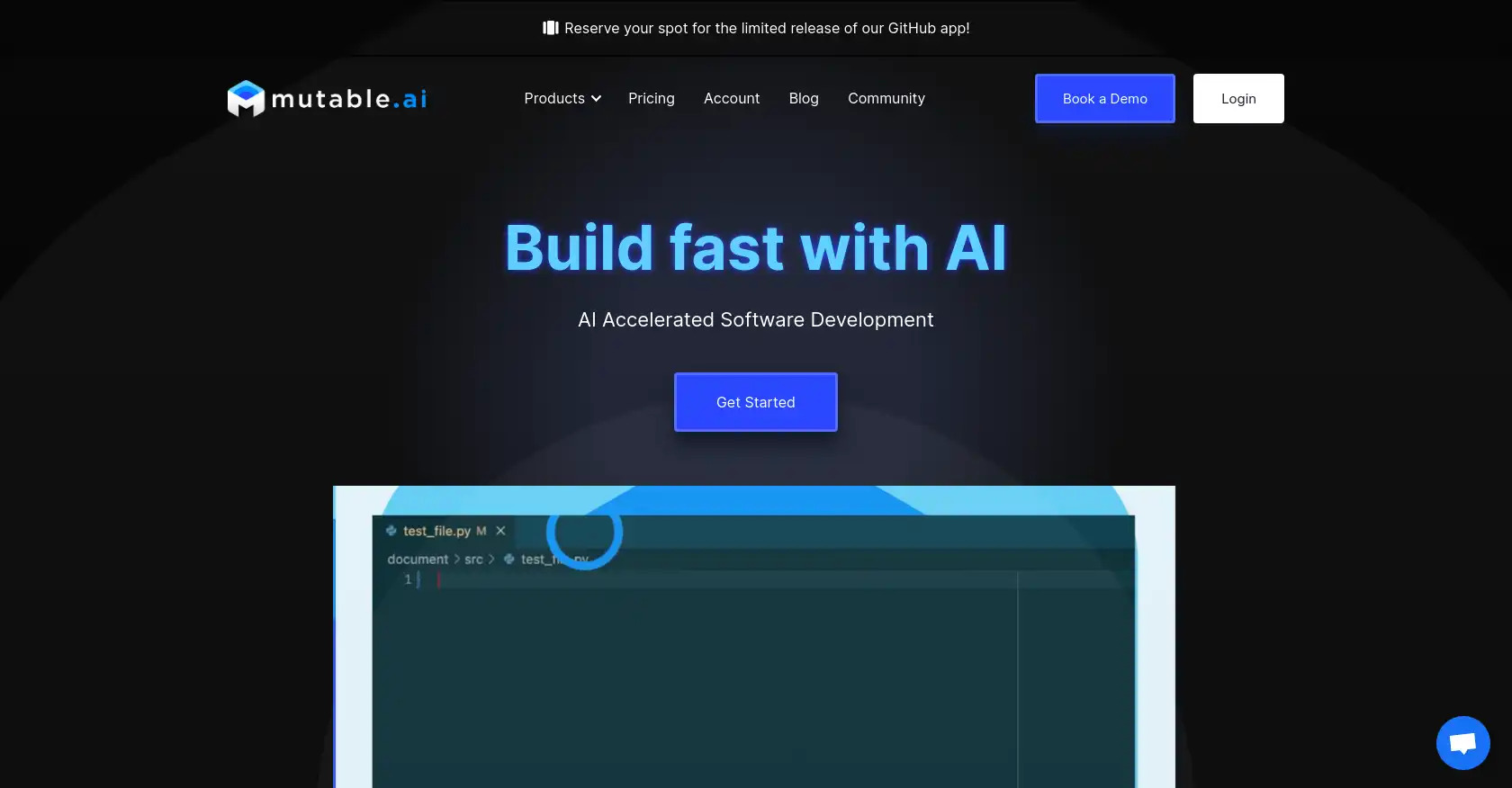Work smarter, not harder! These 10 AI tools are your secret weapons for efficient coding. From bug detection to code generation, we’ve got you covered. Level up your developer game and impress your clients.
Artificial intelligence has become an integral part of our society and economy. However, the software development industry has experienced the most significant impact, both positive and negative.
Nowadays, there are numerous AI tools available that can assist in code suggestion, autocompletion, debugging, and code refinement, thereby speeding up software development. These tools can also test applications, enhance functionality, and provide valuable performance insights. While these advancements are exciting, they have also led to increased competition in the field, making it challenging to choose the right AI coding assistant tool.
To simplify your search, we will present the top 10 AI tools for developers, highlighting their best features and limitations. Let’s explore these tools and find the one that will elevate your software development skills to new heights!
How Are Developers Utilizing AI In Their Work?
AI tools are being used more and more by developers to make workflows more efficient, save time, and speed up development processes. There are several advantages to using AI tools in software development:
- Boosted efficiency: AI tools are utilized by developers to accelerate coding by providing automated code completion. This reduces the chances of human errors and allows for additional time to focus on more knowledge-intensive tasks.
- Improved software dependability: These tools have the ability to automatically detect bugs and provide recommendations on how to resolve them, making testing easier.
- Forecasting analytics: AI tools identify performance issues in applications, allowing code optimization for improved functionality.
- Simplifying a complex system: These tools help developers create innovative software by using natural language processing (NLP), which allows AI to understand and generate human language. This makes it easier for developers to comprehend complex code and documentation.
- Regular maintenance: AI software development tools ensure system stability and reliability by monitoring and analyzing in real-time, detecting potential issues before they escalate.
Key Factors To Look For In An AI Tools For Developers
When choosing an AI development tool, ensure that it possesses the majority (if not all) of these features and qualities:
- Auto-fill code: Find AI tools that offer code suggestions and auto-completion to speed up the development process and minimize mistakes.
- Reviewing code features: Determine if the tool provides options to evaluate and examine code for its quality, style, and possible problems.
- Features for privacy and security: Make sure the tool has strong security measures in place to safeguard your data and code from unauthorized access.
- Suggestions for functions: Verify if the tool is capable of proposing functions, methods, or enhancements to improve the quality and efficiency of the code.
- Code testing and unit testing tools: Check if the tool can perform automated code testing and unit testing, as it is essential for ensuring software quality.
- Different ways to integrate: Search for solutions that can easily integrate with third-party apps and programs that you frequently use during your development process.
- Support for different languages: Ensure the tool is compatible with your programming languages and can understand natural languages for better communication.
Top 10 AI Tools For Software Developers In 2024
OpenAI Codex

OpenAI Codex, developed by OpenAI, is an advanced AI model that specializes in comprehending and generating code.
It is similar to ChatGPT 4 but specifically tailored for software developers. Codex possesses expertise in multiple programming languages, such as Python, JavaScript, Java, C++, and Ruby.
Its versatility is impressive as it can write code for different purposes, debug or clarify existing code, translate code between languages, and even automate repetitive coding tasks.
Key features
- Multilingual Code Generation: OpenAI Codex is capable of generating code in several programming languages, including Python, JavaScript, Java, C++, Ruby, and others. Its versatility makes it an extremely flexible tool for different programming environments and tasks.
- Understanding Natural Language: Codex is highly skilled at comprehending natural language queries, allowing users to express the code they require in simple English.
- Wide Range of Applications: Codex aids in writing code, debugging, translating between languages, explaining code, and automating repetitive tasks.
Limitations
- Issues of Accuracy and Reliability: While Codex is powerful, it is not flawless. The generated code may be inefficient, contain bugs, or not fully align with the user’s intentions. Users should review and potentially modify the output.
- Ethical and Security Worries: The ethical programming practices and security are a concern when using Codex. It could unintentionally create code that is susceptible to security problems.
Openkoda
Openkoda is a platform for Java developers that aims to make enterprise and SaaS application development easier. It is open-source and low-code, allowing developers to streamline their development process.
By using Openkoda, developers can create applications efficiently, while ensuring scalability and security. It provides ready-to-use features like user management and payment integration, saving time and effort.
The latest version of Openkoda introduces an exciting addition called AI companion. This intelligent AI tools takes rapid software development to a new level by assisting developers in writing code and developing functionality through simple prompts.
Imagine using Openkoda’s low-code capabilities to develop a simple enterprise software, like a time tracking application. This software already has basic time tracking and project management features. Now, you want to add a new feature to automatically generate reports and send them to the HR department.
With Openkoda’s AI companion, you can quickly and efficiently deploy this feature using natural language commands. Customization is also easy, just ask the AI companion to make changes.
Key features:
- Fast Software Development: Openkoda speeds up application development by reducing the need for manual coding. Its user-friendly interface and pre-built elements empower developers to quickly build applications, expediting the process.
- Development Powered by AI: Openkoda automates development processes, such as code generation, by integrating with its AI companion. This AI support boosts efficiency and helps create reliable enterprise software solutions.
- Lower Costs: Openkoda simplifies software development, reducing costs and making it more accessible for businesses, especially small to medium-sized enterprises, to create applications with fewer resources and in less time.
Limitations
- Ongoing Development: Openkoda is undergoing ongoing development to introduce innovative low-code and AI-powered features, gradually adding advanced functionalities in future updates.
GitHub Copilot

GitHub Copilot is a smart code completion AI tools that uses artificial intelligence. It was created through a collaboration between GitHub and OpenAI. Copilot seamlessly integrates into a developer’s coding environment and provides suggestions and completes lines of code in real-time.
By analyzing the code being written, Copilot predicts the next lines or functions that the programmer may require. This predictive ability is a result of its training on a vast collection of publicly available code, enabling it to assist with various programming languages and tasks.
Key features
- Intelligent Code Suggestions in Real-Time: GitHub Copilot is a fantastic AI tools that provides instant code suggestions while developers are typing. It acts as a helpful assistant, improving coding speed and efficiency, which leads to quicker software project development.
- Context-Aware Suggestions: The tool understands code context well, examining codebase and comments to offer relevant code suggestions. This ensures valuable and consistent contributions to the project.
- Learning from Public Code: Copilot gains its intelligence from being trained on a wide range of public code repositories.
Limitations
- Suggestions’ Quality and Dependability: GitHub Copilot’s suggestions may not always be accurate or optimal, despite its advanced capabilities. Users may need to modify or reconsider recommendations to fit their specific use case. Thoroughly reviewing and understanding the suggested code is crucial.
- Ethical and Security Worries: Using publicly accessible code to train Copilot raises concerns about intellectual property and licensing.
Tabnine
Tabnine, an AI-powered code completion tool by Codota, enhances software development efficiency. It uses deep learning algorithms to provide intelligent code completions, predictions, and suggestions based on the user’s work context.
Unlike other tools, Tabnine’s model is trained on a mix of open-source and proprietary code, resulting in more diverse and accurate suggestions. It guarantees precise and high-quality code snippets, but the extent of these promises is for users to explore. Tabnine seamlessly integrates with popular IDEs like Visual Studio Code, IntelliJ IDEA, and PyCharm.
Key features
- IDE Integration: Tabnine integrates with IDEs like Visual Studio Code, IntelliJ IDEA, PyCharm, and more, allowing developers to access its features directly in their coding environments for improved workflow efficiency.
- Custom Learning: Over time, Tabnine adjusts to the user’s coding style, providing personalized code suggestions. This ability to learn ensures that the suggestions become more tailored and effective as the developer continues to use Tabnine.
- Context-aware code completion: Tabnine provides smart code completions using advanced deep learning algorithms that are context-aware.
Limitations
- Limited help for challenging coding tasks: Tabnine is great for regular code completions, but it might not be as helpful for intricate coding tasks or specialized programming areas that require context and subtlety.
- Training data quality determines dependence level: Tabnine’s suggestions are highly reliant on the quality and variety of the code it was trained on.
Amazon CodeWhisperer
Amazon’s CodeWhisperer is an AI-powered code assistant developed by AWS. It enhances developer productivity by providing real-time code suggestions and generating code snippets or functions. It supports multiple programming languages and integrates smoothly with popular development environments.
What sets CodeWhisperer apart is its focus on security and best practices. It conducts security vulnerability scans and checks for biased code, resulting in higher quality and more secure code.
Key features
- Security Suggestions: Amazon CodeWhisperer offers code completion and security suggestions. It detects and helps fix security problems in code, promoting secure coding practices.
- Code Refactoring Suggestions: CodeWhisperer improves code quality and maintainability by suggesting code refactoring, enhancing readability, structure, and performance.
Limitations
- Reliance on the AWS Environment: CodeWhisperer, an AWS product, seamlessly integrates with and offers benefits for projects already using AWS. However, this may limit developers or organizations not heavily reliant on AWS services.
- Limited language and framework support: CodeWhisperer supports many programming languages but not all, especially newer or less popular ones. This limitation may hinder its effectiveness for developers in those environments.
Replit Ghostwriter
Replit is a cloud-based IDE with a unique feature called Replit Ghostwriter. This AI tools provides real-time coding suggestions and completions, making it great for rapid prototyping and learning programming.
By analyzing code using machine learning, Ghostwriter offers helpful suggestions, similar to predictive text. Whether you’re a beginner or experienced developer, Replit and its AI-driven tool can boost productivity. Try it for a collaborative web-based development environment powered by AI!
Key features
- Aid for Interactive Learning: Ghostwriter is a valuable AI tools for beginners and students to learn programming. It offers instant code suggestions and corrections, enhancing comprehension of programming concepts and syntax. Additionally, it boosts coding efficiency for experienced developers by swiftly generating code snippets and solutions, saving time on mundane tasks and enabling them to concentrate on more intricate aspects of their projects.
Limitations
- Relying on AI Precision: Ghostwriter’s AI model’s accuracy affects its effectiveness. Users must have a good understanding of the code to identify and fix any inaccuracies in the suggestions. Over-reliance on Ghostwriter’s AI-driven code suggestions may hinder deeper learning and understanding of programming concepts.
Code T5
Salesforce has developed CodeT5, an AI tools specifically for understanding and generating code. It is based on the Transformer architecture, like GPT-3, but fine-tuned for programming languages.
CodeT5 has been pre-trained on the CodeSearchNet dataset, which includes code in six programming languages: Ruby, JavaScript, Go, Python, Java, and PHP. It can perform tasks like code summarization and generation, making it valuable for software development. CodeT5 is trained on a large dataset of code from different sources, enabling it to understand and generate code in multiple programming languages.
Key features
- Help with Code Documentation: CodeT5 has an impressive feature that automates code documentation, generating comments and documentation to help developers maintain well-documented and understandable codebases. This is crucial for long-term project maintenance.
- Improved Code Comprehension: CodeT5’s advanced model is highly context-aware, enabling it to generate, interpret, and comprehend code. It is valuable for code review and analysis, offering insights and suggestions to improve code quality and efficiency.
Limitations
- Limitations of Data for Training: CodeT5’s performance and reliability heavily rely on the training data’s quality and diversity. If the training data doesn’t cover various languages, paradigms, or styles, the model may not perform well in those specific areas.
- Complexity in Integration and Usage: Using CodeT5 in a development workflow can be challenging for less experienced developers or those unfamiliar with AI-based tools due to its advanced features and the technical expertise required.
MutableAI

MutableAI is a software development tool that uses AI to enhance coding. It works with platforms such as VS Code and GitHub. With AI autocomplete, it helps code faster and assists with documentation and code refactoring. MutableAI focuses on improving coding efficiency, writing documentation, and refactoring code.
It reduces time spent on boilerplate coding and searching for solutions on platforms like Stack Overflow. It also allows users to modify code with AI-driven instructions. MutableAI is valuable for both back-end and front-end developers, improving the coding experience at various stages of development.
Key features
- AI Autocomplete: MutableAI’s AI autocomplete feature enhances the coding process by providing contextually relevant code snippets, saving developers time on repetitive coding tasks and manual searches for solutions.
- Rewriting code and creating documentation: The AI tools helps with code refactoring and writing documentation, improving code quality and maintainability. It also enables users to provide AI-guided instructions for making direct code edits.
Limitations
- Relying on Integration Platforms: Developers who use various environments or need wider compatibility may find its usefulness limited, as it is closely integrated with specific platforms such as VS Code, Jupyter, and GitHub.
- Limited self-reliance in complicated projects: AI autocomplete and prompt-driven development are helpful, but may not be enough for complex coding problems or specific coding requirements. Manual intervention may be required for advanced or unique coding scenarios.
AskCodi
AskCodi is an AI-powered code generator that enhances software development by providing intelligent code suggestions, making coding faster and more efficient. It uses OpenAI GPT and offers functionalities like code generation, unit test creation, documentation, and code conversion.
One advantage of AskCodi is its extensive support for over 50 languages and frameworks, with continuous expansion. This distinguishes it from classic ChatGPT, which struggles with less popular tech stacks. With streamlined syntax, automated comments, and integrated testing, AskCodi helps developers minimize repetitive tasks and focus on execution.
Key features
- Codi Chat and Workbooks: AskCodi offers exclusive features such as Codi Chat and Workbooks, providing a coding experience that is both interactive and guided.
- Multi-Language Support: It can cater to a wide range of coding requirements and developer preferences by supporting more than 50 programming languages and frameworks.
Limitations
- Problem Solving with Limited Depth: AskCodi is skilled at managing various coding tasks, but it may not extensively explore intricate or advanced programming challenges. This could restrict its usefulness for high-level or specialized coding projects.
- Integration Challenges: Developers may face challenges integrating AskCodi into their workflows, especially in complex development setups, due to compatibility and integration issues with existing tools and environments.
CodeWP
CodeWP is an AI-powered tool that generates code snippets and handles complex logic to enhance WordPress development. It streamlines the process of building WordPress sites by allowing developers to generate code instantly, reducing the need for manual searches.
CodeWP excels in generating code for various WordPress features such as plugins, custom post types, taxonomies, and Advanced Custom Fields (ACF). It is a unique and powerful AI tools in the WordPress niche, offering extensive capabilities for WordPress-specific development.
Key features
- Wide Range of Code Samples: CodeWP offers diverse code snippets for WordPress features, enabling developers to swiftly find and implement the necessary code.
- WordPress Ecosystem Compatibility: Specifically designed for WordPress, it supports key features like custom post types, taxonomies, and Advanced Custom Fields (ACF), enhancing its usefulness for WordPress development.
- Simplified Development Procedure: CodeWP speeds up the development process by quickly generating precise code, making it easier to create and update websites faster.
Limitations
- Specialization in WordPress: CodeWP is limited to WordPress, which may not be ideal for developers working on different platforms or requiring a more flexible coding tool.
- AI-Dependent Accuracy: The code’s accuracy depends on the AI’s capabilities and may not always meet specific needs or complexities of WordPress projects, despite simplifying code generation.



Leave a Reply